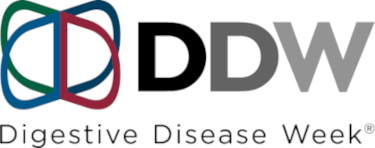The accreditors of this session require that you periodically check in to verify that you are still attentive. Please click the button below to indicate that you are.
1139
TNF SIGNALING DRIVES EXPANSION OF REGENERATING ISLET-DERIVED PROTEIN 4 (REG4)+ EPITHELIAL CELLS IN COLITIS.
Date
May 21, 2024
Unraveling outcomes of cell-specific TNF-signaling targets is essential to understand non-response to anti-TNFs in colitis. Regenerating islet-derived protein 4 (Reg4), a marker of mouse colonic deep crypt secretory cells (DCS), highly upregulated in colitis, is therapeutically intriguing because it activates epithelial regeneration in injury-models, however, its role in colitis is unknown. Here we investigated whether activating TNF-TNFR1 signaling affects Reg4+ cells in colitis. REG4 was determined in colitis patients using sequencing-analysis and immunohistochemistry; with anti-TNFR1 antibody challenged TNF-treated human control-colonoids via PCR and in-situ; in mice with epithelial TNFR1 deletion (Vil1-Cre;TNFR1fl/fl); in DSS-colitis; and in TNF-treated TNFR1-/--colonoids. Reg4 in chronic-colitis was determined in Il10-/-TNFR1fl/fl and Il10-/-Vil1-Cre;TNFR1fl/fl mice. We show that Reg4+ cells were reduced by 55% in Vil1-Cre;TNFR1fl/fl mice and 36% in TNFR1-/--colonoids, compared to TNFR1fl/fl-controls, demonstrating that epithelial TNFR1 signaling specifies mouse Reg4+ cells. In human control-colonoids, TNF increased REG4+ cells by 2-fold, which was blocked completely by anti-TNFR1 neutralizing antibody. Similarly, in mouse-colonoids, TNF recovered Reg4+ cells in a dose-dependent manner, that was inhibited in TNFR1-/--colonoids. In chronic inflammation, Reg4+ cells were decreased (p<0.01) in Il10-/-Vil1-Cre;TNFR1fl/fl relative to Il10-/- and Il10-/-TNFR1fl/fl-mice, resulting in a reduced injury score, chemokine expression, and crypt hyperplasia. Intriguingly, in the healthy human colon, REG4 did not identify DCS, it localized specifically to differentiated cells, but in colitis, expanded to the crypt-base like the mouse colon. In colitis patients, REG4 expression was enriched in DUOX2+ inflamed colonic secretory enterocytes. Their expression was enhanced in the regenerating-crypts of the inflamed colon while secretory markers of the same population (MUC2, CLCA1, ZG16, SPINK4), although co-localized with REG4, were significantly reduced in colitis patients. Consistently, in DSS-colitis, Reg4 expression was specifically enhanced at Day15-36 in the recovering epithelium. Sequencing-analysis of the intestinal-mucosa of anti-TNF-treated colitis patients showed that non-responders exhibit elevated levels of REG4 and TNFR1 expression compared to responders and untreated controls, suggesting their role in predicting response to anti-TNFs. In conclusion, we show 1) a novel regulatory mechanism by which TNF via TNFR1 promotes specification of colonic Reg4+ cells; 2) REG4 in humans is not restricted to the equivalent DCS in mice; and 3) REG4 plays a role in the recovery of injured colon and predicts non-response to anti-TNFs. Understanding outcomes of TNF-driven cell-specific targets will help tailor anti-TNF therapeutics to increase efficacy in colitis.


